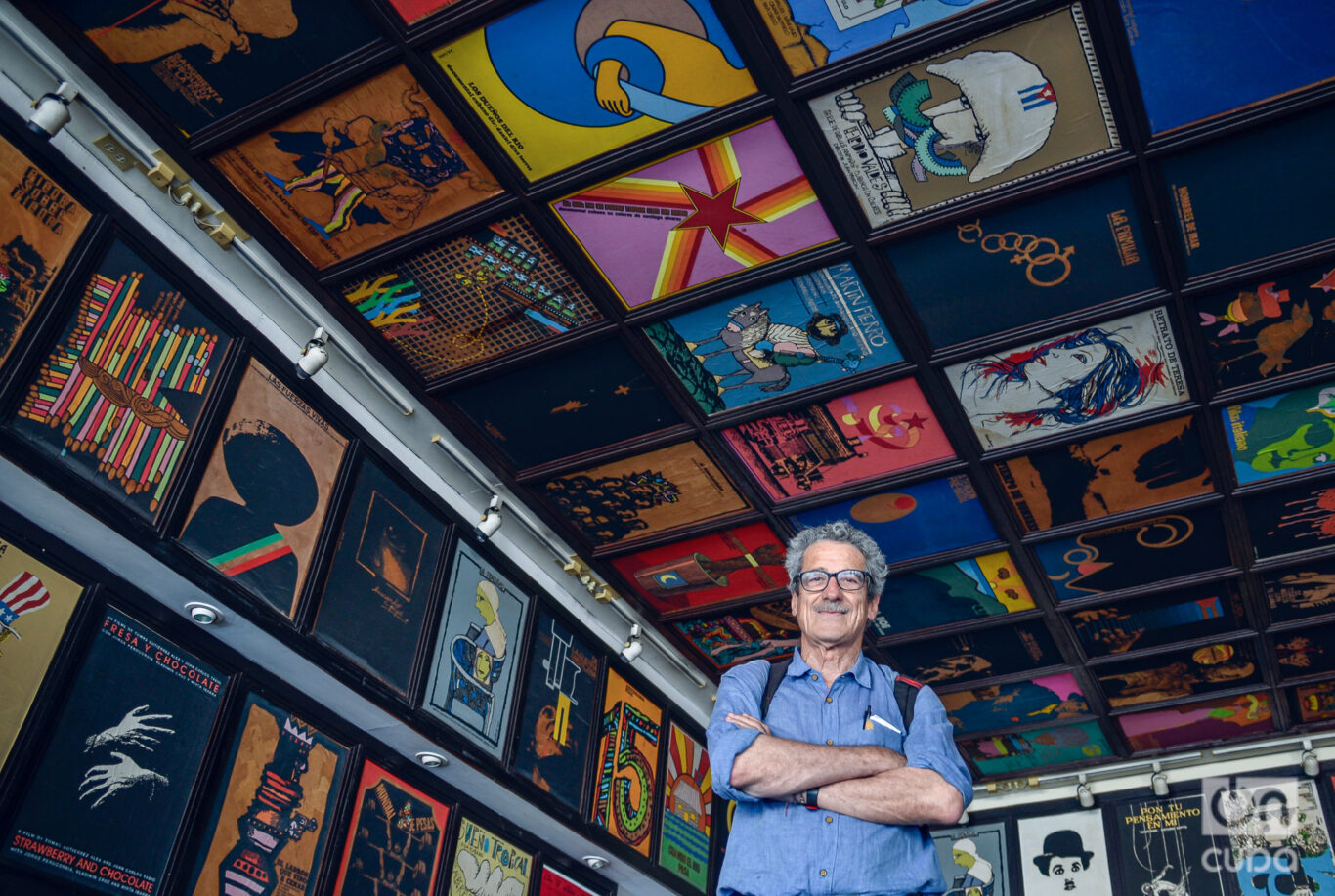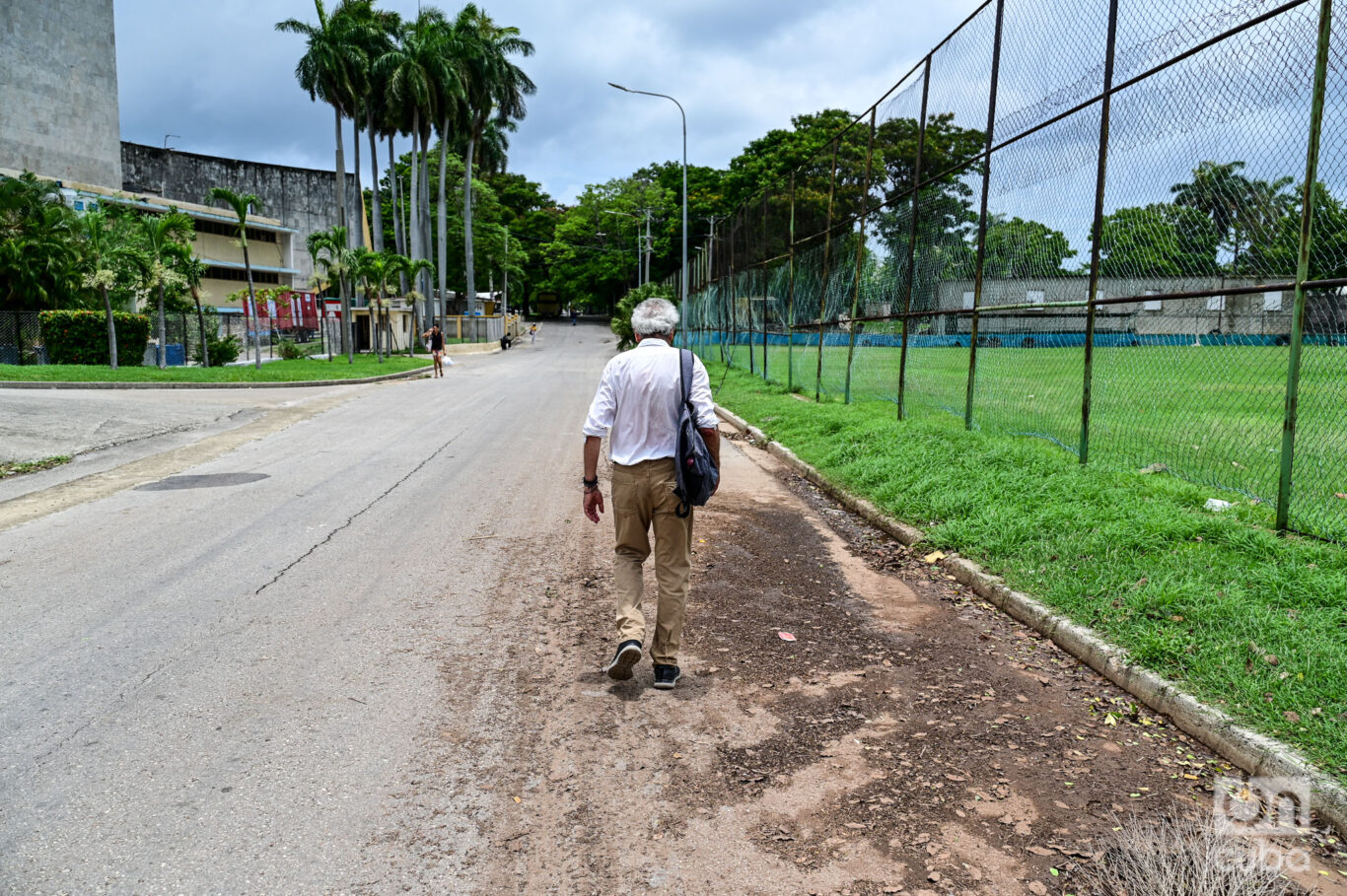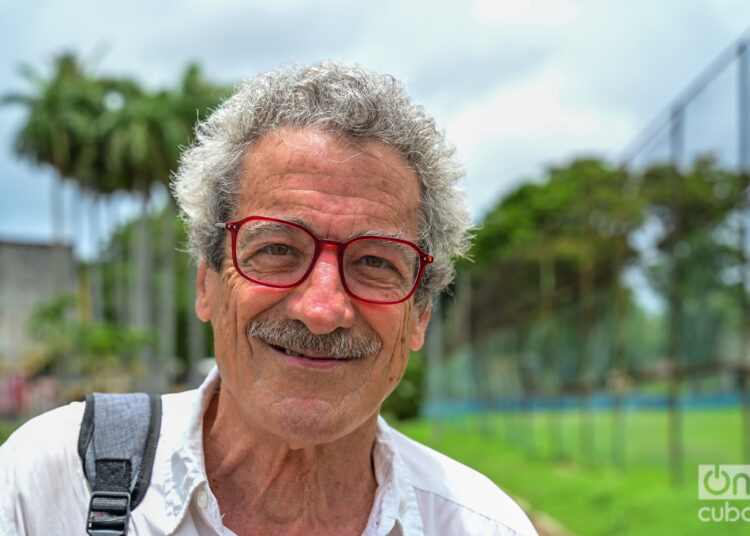Fernando Pérez must be one of the few human beings on the planet who is impossible not to love. It is enough to see him smile and hear him say a few words to feel like someone close to you. He is one of those rare people who, unanimously, receive sincere praise from those who have met him personally, academically, and professionally. The fact that he is one of the greatest Cuban film directors has not gone unnoticed.
A few days ago, on November 19, the Fábrica de Arte Cubano (FAC) paid tribute to the renowned filmmaker on the occasion of his 80th birthday. I thought that the New Latin American Film Festival in Havana was, in turn, an ideal setting to celebrate the director’s life, perhaps with a retrospective of his work. Let’s hope so, inside or outside the Festival.

A few months ago, in the middle of the Havana summer, I ran into him under the scorching midday sun. He was crossing the burning asphalt of the Plaza de la Revolución. He crossed Boyeros Avenue and disappeared down a street until I shouted his name.
The sequence was almost cinematic. Fernando was walking through his Havana, dressed like Fernando: trousers and shirt sleeves rolled up to the elbow, a backpack on his shoulder and a slow, rhythmic walk. Fernando the traveler.
Perhaps it is due to this closeness to everyday life, that has allowed him, among other things, to portray Cuba like few others. In each film, he weaves a mosaic of emotions and landscapes that speak of a deep, contradictory island. In Clandestinos (1988) he narrated the revolutionary passion of a generation; in Hello Hemingway (1990) he explored the youthful dreams of an adverse context; and in Madagascar (1994), set in the difficult decade of the 1990s, he delicately addressed the fragility of human ties, achieving a balanced interweaving of realism and surrealism that enriches his narrative. With La vida es silbar (1998), he offered a poetic fable about hopes and frustrations, while Suite Habana (2003) captured the soul of Cuban everyday life in a silence that says it all. Later, Madrigal (2007) combined reality and fantasy, while José Martí: el ojo del canario (2010) humanized the national hero like never before. In works such as La pared de las palabras (2014), Últimos días en La Habana (2016) and Insumisa (2018), he explored the most intimate struggles of illness, friendship and resistance. Finally, with Riquimbili o El mundo de Nelsito (2023), he reminded us that imagination is a powerful refuge.
“My closest inspiration has been the visual universe created by Magritte in his paintings, where reality is reality, but at the same time, it is another reality. My dream has been to make a film as if Magritte painted his pictures in Havana today,” he once said. And he has achieved it.
Throughout his career, Fernando has combined poetry and coherence, something that is also perceived in an introspective interview for Rialta in 2020. There he reflected on his career and his creative autonomy:
Retired (but active), I look back without anger and I can say that, if something can characterize my filmography, it is that they are all films that I wanted to make: there is nothing in them that does not belong to me in form and content.

That day I saw him and shouted his name a couple of times, he stopped, turned around and watched me as I ran towards him. When I arrived, I hugged him tightly. No matter who you are, Fernando always embraces you, shelters you. If not, ask the filmmakers who, with a script under their arm, have found in him a word of encouragement. Or those young Cuban writers and artists who one day stood outside the Ministry of Culture, so that they would be heard. There, on the sidewalk in front of the bureaucrats, among the young people, was Fernando: the National Film Award winner, the teacher, the one who never turns his back.
In November, Fernando Pérez Valdés turned 80. There is no need for a round number to celebrate his life and his creation. But in the framework of the Havana Film Festival, it is appropriate to stop for a moment to evoke this humble giant, who has managed to give us back an island that breathes in each of his frames.











Sou brasileiro e só hoje assisti ‘Suite Habana’ pela primeira vez. Gostei do trabalho desse diretor, e especificamente morri de curiosidade para saber sobre o personagem Francisquito Cardet, como está hoje. Queria tanto saber se o diretor ainda mantém contato com aquelas pessoas!